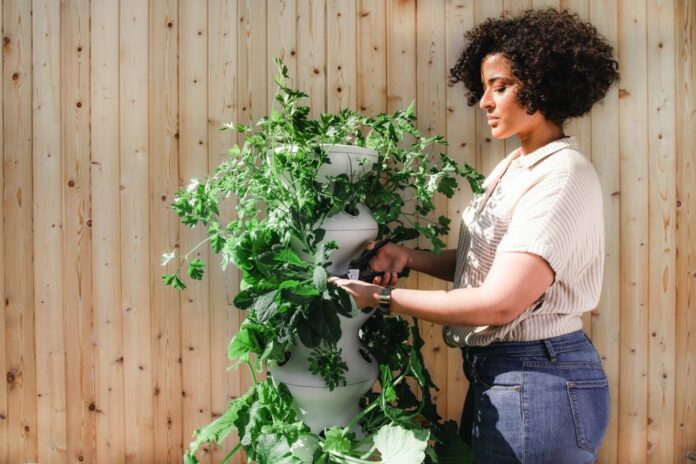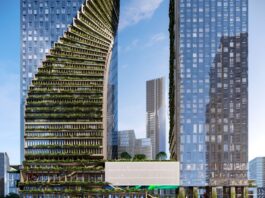If you haven’t watched the documentary David Attenborough: A Life on Our Planet, then you’ve probably noticed the weather. Both are telling a story of the dangerous and worrying position the planet is in right now, with species dying out and natural catastrophes raging globally. You may think that you can’t do anything about this but protest and plead with politicians to take this matter seriously. However, the truth is that the little man is the wave of change that can make the world a better place for future generations, if not ours.
Even something as small as growing your own food can make a difference in the world and benefit the environment. Gardening may sound complicated and it probably will be in the beginning, but once you learn the basics, you can take control of your diet and be a part of the eco-friendly way of life. While the specifics of what to grow to depend on your capabilities, the matter of how doing it can help the planet is universal to all.
Learning about the environment
In his book The Closing Circle (1971), and American biologist Barry Commoner established the four laws of ecology:
- Everything is connected to everything else — if one thing in the ecosystem is damaged, it can affect other parts of the said ecosystem.
- Everything must go somewhere — piling up of harmful materials in nature because the used resources create waste that is discharged into the environment.
- Nature knows best — it’s believed that technology can improve nature, but it actually causes huge man-made changes that may be harmful to the environment.
- There is no such thing as free lunch — all used natural resources must be replenished or there will be devastating consequences.
If the environmental crisis attests to anything is that none of these four laws has been respected before and after their publication. Growing your own food may seem like a small step to improve things, but it can be a positive example that others will follow. Gardening is more than cultivating plants — it’s a principle that can teach you a lot about nature, yourself, and how you two are connected and co-dependent.
More clean air in the world
Plants perform photosynthesis — a process that uses solar energy to turn carbon dioxide from the air, minerals from the soil, and water into nutrients and oxygen. This oxygen is released into the air just like we breathe out carbon dioxide, a colorless gas that is one of the main pollutants of our environment. Increased industrialization, deforestation, and use of fossil fuel have caused the rise of its concentrations which resulted in global warming.
While turning into a gardener may not change the global pollution immediately, it can fill the area where you live with healthier air. Moreover, since plants tend to process pathogens from the air, they may give you an environment free of bacteria and chemicals.
Reuse of waste
While some types of waste need to be professionally recycled, or disposed of, you can still participate in this process. Kitchen scraps, foliage, and branches can all become compost that you will use to fertilize the plants and avoid using chemicals. Carbon, nitrogen, oxygen, water, and microorganisms are important for composting since they speed up the decomposing of organic material.
To make good compost, you need to balance brown and green ingredients, like:
- Teabags
- Nutshells
- Fruits and vegetables
- Coffee grounds and filters
- Sawdust
- Woodchips
- Shredded newspaper, paper, and cardboard
- Cotton and wool rugs
- Fireplace ashes
- Grass, leaves, branches, and twigs
- Hay and straw
- Eggshells
- Hair and fur
- Houseplants
- Dryer and vacuum cleaner lint
However, certain materials are not suitable for compost since they can attract pests, pollute the plants, or even destroy the crops. It may seem like a complicated and gross process, but consider that otherwise, all that material would end up on the dumping ground to decay and pollute the environment.
Nurturing natural pollinators
Wildlife likes nature and it’s attracted to greenery. Some may be pests and eat or ruin your crops, but some need your help, like natural pollinators. Bees are important in the pollination of plants and they affect the food supply.
Globally, as much as 30% hive losses were reported every year, with some bee species on the brink of extinction. This is caused by the use of pesticides, climate change, and destruction of colonies by man activities. By inviting bees into your garden, you would help them survive and the global food production that depends on them.
Eliminating the use of toxic chemicals
Toxic chemicals are the main ingredients of pesticides, insecticides, and fertilizers. They also frequently end up from the soil to the waterways and poison the planet. It’s a general belief that using organic products for plant cultivation is not as efficient, but nothing boosts nature like nature itself.
You can make your own products, like compost and homemade weeding spray, or you can buy those made for the eco-friendly growing of your food. Those chemicals also end up in the veggies and fruits you eat, and thus in your body with serious consequences for your health.
Taking care of monocropping
Commercial farmers tend to grow one type of crop on the same land. This is called monocropping and is in most countries of the world even done with governmental support. The bad thing about it is that it’s negatively affecting biodiversity, includes GMO seeds, and destroys the soil.
Since you are in control of your own garden, you can do things differently and environmentally beneficial. By setting a positive example for farming, you can show the government and commercial farmers that it’s possible to use sustainable means and have a good harvest.
Helps with noise pollution
The cities have become loud. The traffic, the conversations, the construction works — the noise is all around us, triggering anxiety, stress, and unrest. It also scares and causes damage to the animal world, since this noise is getting closer to natural habitats. Plants are great noise absorbers and serve as a barrier to protect your property and wildlife visiting the garden.
Trees and shrubs should do the trick, plus you will have a lot of tasty fruits to harvest when the time comes. Think about varieties that do well in your region to help them give fruit sooner and grow faster to reduce noise pollution.
Reducing the need for cooling
You noticed that the temperatures are higher than usual and that means a lot of use of the AC unit. Cooling is not cheap and emits toxic gasses into the air, contributing to the overall pollution. Plants are a great way to create natural shade and a comfortable cooling effect.
Fruit and nut trees are great to block the sun, but also some shrubbery plants may help as well. Plant them around the house where you have the most exposure to the sunlight. They will appreciate the light, and you won’t have to overuse your cooling device and add to the carbon footprint.
Less unnecessary water consumption
Humans and other beings on the planet depend on water, but it’s not unlimited as it may appear. Commercial farms and food processing factories use a lot of water, which in turn can affect the shortage during dry periods. When growing your own food, you install a water timer on the irrigation system and collect rainwater in the barrels.
Since you will use eco-friendly farming, the water you use will go free of chemicals into the ground and turn into a healthy drink at the end. It is also a good idea to see with relevant bodies in your area whether you can dig a well in your yard. That way you will use the water from your land and return it back, just like the fourth Commoner’s law of ecology says.
Reduced use of plastic
Consider how much plastic is used to pack your food and where it ends up after you throw the packaging away. Plastic has a toxic effect on the environment since it releases chemicals in its surroundings and endangers the ecosystem. You probably saw the effects it has on wildlife, with animals entangled in plastic. A staggering 13 million tons of plastic waste is in the oceans based on estimates, causing harm or death to marine mammals, fish, sea turtles, and seabirds.
To put it simply, if you grow your own food, you may be saving a life in the ocean, in the forest, or anywhere else in the wild. And thus, saving human lives as well that depends on the balance in the natural ecosystems.
Downsizing the carbon footprint
While plants use carbon dioxide and clean the air, you can also do the same by growing your own food. A lot of products are imported from all over the country or world, which means a lot of fuel spent on airplanes, trucks, and boats. Also, you will less use your car to go for supplies since you have all the ingredients right at your door.
Lastly, let’s not forget the amount of energy used for cultivation of the crops, harvesting, processing, and refrigeration. It all adds to the carbon footprint that is already alarmingly high and causing havoc all over the world.
In the end
Let’s not kid ourselves — gardening is not easy. It takes patience, time, and dedication to have a successful harvest. Nonetheless, it’s rewarding, healthier, and can help repair the damage that decades of human behavior have done to the planet.
Growing your own food is setting an example that anyone can follow until the whole world accepts a more responsible and eco-friendly way to produce food. Humans didn’t land on the Moon that 1969 in one day, but it took a desire to push the boundaries of possibilities to get us there. To paraphrase Neil Armstrong — you may be making small steps, but it’s paving a way for that giant leap for mankind.




